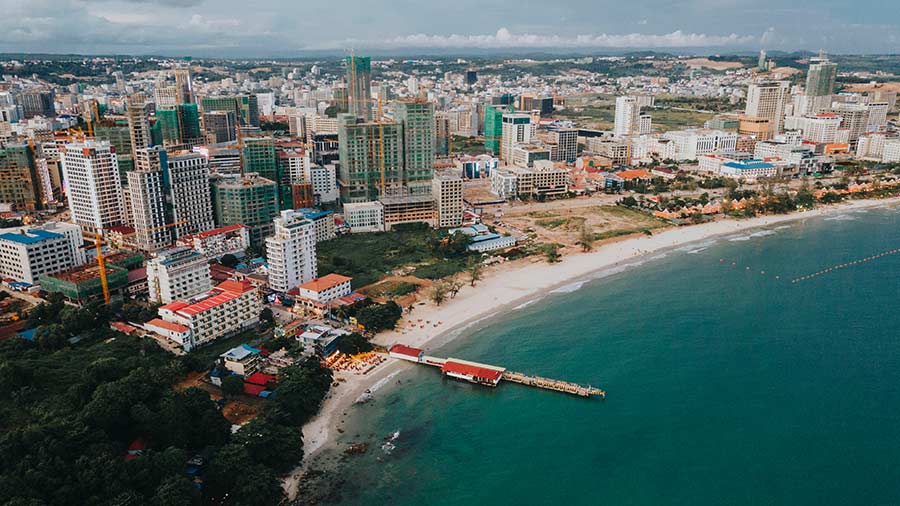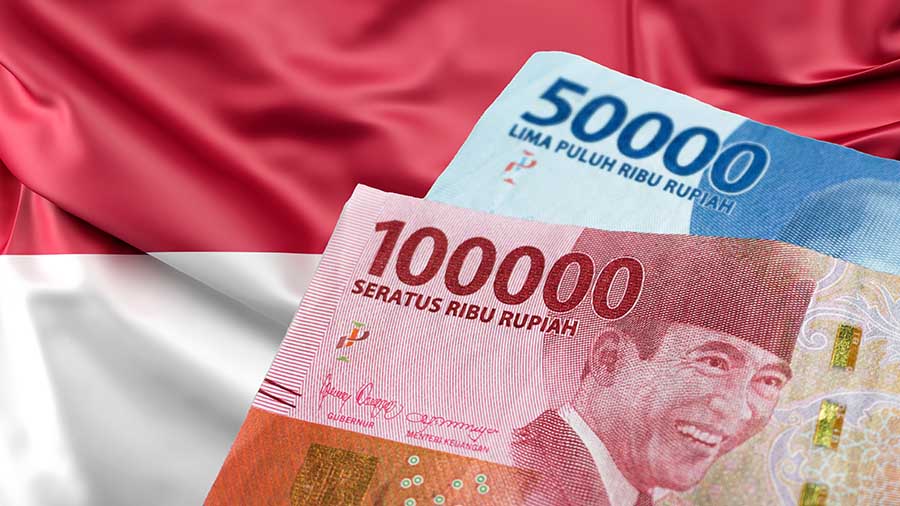Indonesia is a land of potential for entrepreneurs and established businesses. Integral to this ecosystem are the government agencies designed to catalyze growth and facilitate business operations.
Government agencies act as the pillars of economic development, offering guidance, resources, and regulatory frameworks essential for businesses to thrive. Their involvement is pivotal in ensuring a balanced and progressive business environment. This article sheds light on government agencies' list and the invaluable support they extend to businesses across the archipelago.
Indonesian Investment Coordinating Board (BKPM)
This agency serves to position Indonesia as a desirable location for investment, both from within and outside the country. BKPM's role is particularly critical in simplifying the investment process, thus making it more attractive for investors by eliminating unnecessary bureaucratic obstacles that can deter business activities.
BKPM has made strides in refining the licensing process, a common bottleneck for many businesses attempting to enter the Indonesian market. By cutting through the proverbial red tape, the board significantly reduces the time and effort required to obtain business licenses.
Ministry of Law and Human Rights
The Ministry of Law and Human Rights in Indonesia, Kementerian Hukum dan Hak Asasi Manusia (Kemenkumham), plays a significant role in the country's business environment. Here are several ways in which this ministry impacts businesses:
- Regulation of Business Entities: The ministry is responsible for the legal framework governing business entities' establishment, operation, and dissolution. This includes the registration of new companies, which is done through the Director General of General Legal Administration (Ditjen AHU).
- Intellectual Property Protection: Through the Directorate General of Intellectual Property, the ministry provides services related to the protection of intellectual property rights (IPR). This includes the registration of patents, trademarks, copyrights, and industrial designs. Protection of IPR is crucial for businesses as it safeguards their innovations and creative works against infringement, thereby promoting fair competition and encouraging innovation.
- Legal Framework for Foreign Investment: For foreign investors, the ministry outlines the legal requirements and rights for conducting business in Indonesia, such as the processes for obtaining the necessary permits and understanding the regulations that apply specifically to foreign-owned companies.
- Human Rights Compliance: The ministry ensures that businesses operate in accordance with the human rights standards recognized by Indonesia through the protection of workers' rights, prohibition of child labor, and ensuring non-discriminatory practices in the workplace.
- Contract Enforcement and Legal Certainty: By providing a clear legal framework, the ministry facilitates contract enforcement and dispute resolution, which are essential for business operations.
- Law Reform and Legal Development: The ministry is involved in drafting and revising laws that affect the business sector, such as Company Law, Bankruptcy Law, and Commercial Law.
- Notary Services and Legal Documentation: Notaries in Indonesia fall under the ministry's purview. They are essential for the preparation and authentication of a wide range of business-related documents, such as deeds of establishment, articles of association, and various contracts.
- Immigration Control for Business Entities: The ministry manages immigration policies that affect businesses, especially in hiring foreign employees. The Directorate General of Immigration administers visas and work permits, which are crucial for businesses that rely on international talent.
- Public Service and Administration: It offers various public services that facilitate business operations, such as the provision of electronic services for company registration, legal consultations, and providing information on prevailing laws and regulations.
Ministry of Trade
The Ministry of Trade in Indonesia fulfills several essential functions and roles in this context:
Facilitation of Export Activities
The Ministry helps Indonesian businesses navigate the complexities of exporting goods and services. By assisting in compliance with international trade regulations, the Ministry ensures that exporters understand and adhere to various market entry requirements.
Policy Development
The Ministry also plays a role in the formulation of trade policies that can enhance the competitiveness of Indonesian businesses. These policies may relate to tariffs, trade barriers, or incentives for businesses that are looking to export.
Barrier Reduction
The Ministry works to identify and reduce trade barriers, whether they are tariff-related, logistical, or regulatory. By doing so, the Ministry helps to create a smoother path for businesses reaching out to global markets.
Business Support Services
The Ministry offers a range of support services to businesses, which can include matchmaking with potential international buyers, facilitating participation in trade fairs, and providing export training programs.
Advocacy and Negotiation
The Ministry acts as an advocate for Indonesian businesses on the international stage. This may involve negotiating trade agreements that open new markets or improve terms of trade for Indonesian exporters.
Trade Promotion
Through various promotional activities, the Ministry helps to increase the visibility of Indonesian products and services abroad.
Ministry of Industry
The ministry focuses on industrial expansion, supporting sectors poised for growth and international competitiveness. This government body helps businesses stay ahead in a rapidly evolving marketplace through investments in technology and innovation.
The following are their core functions that impact businesses:
- Industrial expansion;
- Sector support and growth;
- Technology and innovation investment;
- Adapting to market demands;
- Facilitating international trade;
- Enhancing competitiveness;
- Sustainable development;
- Workforce development; and
- Regulatory framework.
Ministry of Finance
The Ministry of Finance in Indonesia is responsible for shaping the financial landscape for businesses within the country. Here’s a detailed look at the role of the ministry based on the information provided:
Tax Relief and Incentives
The Ministry of Finance formulates tax relief that could come in different forms, such as reduced corporate tax rates, tax holidays, or allowances for certain industries or activities considered beneficial for the country’s economic growth.
Access to Financing Options
Ensuring that businesses have access to the necessary capital to start and grow is crucial. The Ministry of Finance may work to facilitate this in various ways:
For Capital-Intensive Ventures
These types of businesses require a significant amount of capital to purchase machinery, build infrastructure, or make other large-scale investments. The ministry might develop programs that offer loans with favorable terms, government guarantees, or even direct funding in some cases. By doing so, it lowers the barrier to entry for these ventures and makes it feasible for them to operate and expand.
For Small and Medium Enterprises (SMEs)
SMEs are often considered the backbone of the economy but may need help accessing traditional banking loans due to perceived higher risks or lack of collateral. The Ministry of Finance can introduce microfinance options, credit guarantee schemes, or even special funds dedicated to SMEs to ensure these businesses can access the capital they need to thrive.
Facilitating Investment
In partnership with other governmental bodies, the Ministry of Finance might work to simplify the process of obtaining financing, such as streamlining application procedures, reducing processing times, and providing clear guidelines on how to qualify for and access different financing options.
Regulatory Framework
While not directly mentioned, it is implied that the Ministry of Finance would also be involved in creating a regulatory environment that supports businesses. This might include simplifying tax compliance procedures, ensuring transparent tax regulations, and providing clear information on the financial support available to businesses.
Public-Private Partnerships (PPPs)
For infrastructural and development projects, the ministry may play a role in structuring PPPs to leverage private sector efficiency and funding in public projects, which can be essential for creating a supportive ecosystem for business growth.
Economic Stability and Policy Making
Through its broader role in managing the country’s finances, the Ministry of Finance contributes to creating a stable economic environment vital for business confidence and investment. Predictable economic policies and responsible fiscal management can help mitigate business risks, encouraging domestic and foreign investment.
Ministry of Cooperatives and SMEs
The Ministry of Cooperatives and Small and Medium Enterprises (SMEs) focuses on small and medium-sized businesses, which often serve as the backbone of the economy; this ministry ensures that these entities receive the support they need to thrive. Among its services, it includes professional training programs designed to enhance the skills and knowledge of entrepreneurs and their workforce.
Consequently, the ministry provides financial assistance to SMEs, which can range from facilitating access to loans and grants to offering subsidies or tax incentives. The ministry also cultivates a supportive ecosystem for SMEs by offering guidance and resources that address the various challenges of running a business. This system could include consulting services on best practices, marketing strategies, and technology adoption to streamline operations and reduce costs.
Sector-Specific Agencies
Indonesia's approach to business support also extends to specialized sectors through dedicated agencies.
Agency for the Assessment and Application of Technology (BPPT)
This agency spearheads technological advancement and application. As an institution, the BPPT is tasked with the evaluation of various technologies to assess their potential impact and applicability within the Indonesian economy. It helps identify technological solutions that are advanced but also suitable and sustainable for local businesses, enabling them to stay competitive in the global market.
The agency acts as a bridge between technological innovation and commercial application, providing support in research and development, technology transfer, and expertise and consultancy services. For companies looking to embrace modernization, the BPPT serves as a crucial resource, offering insights and access to the latest technological advancements tailored to their specific needs.
National Agency of Drug and Food Control (BPOM)
The National Agency of Drug and Food Control, often abbreviated as BPOM, is a regulatory body tasked with overseeing the safety and quality of pharmaceuticals and food products within its jurisdiction.
The primary role of BPOM is to protect consumers by ensuring that all pharmaceuticals, food products, and other consumables meet stringent safety standards before they are allowed onto the market.



















